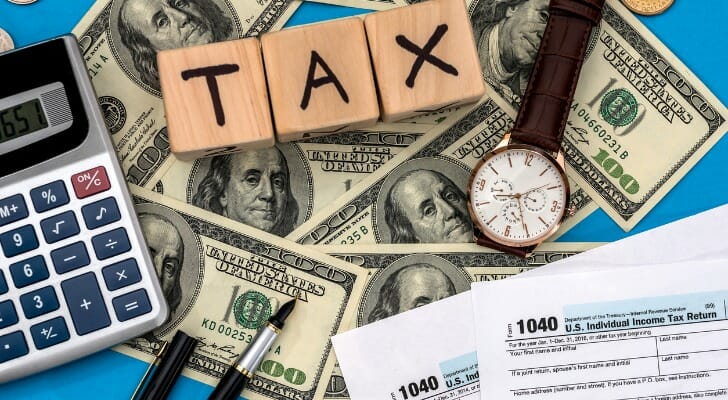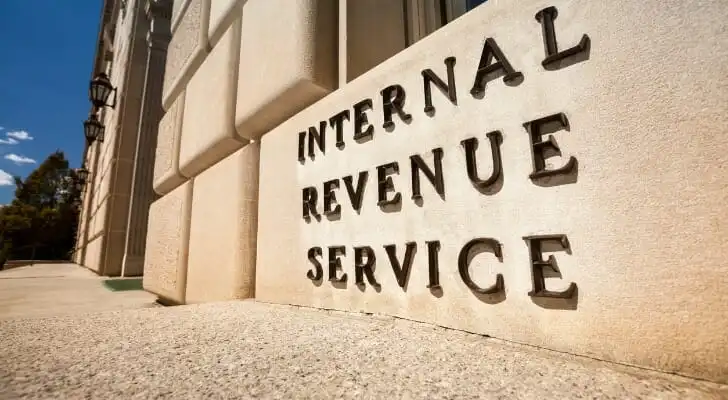

Capital gains tax generally applies when you sell an investment or asset for more than you paid for it. In other words, any profits resulting from the sale are considered taxable in the eyes of the Internal Revenue Service. Whether you pay the short-term or long-term capital gains tax depends on how long you hold the investment before selling it. Short-term capital gains are subject to ordinary income tax rates, which are set by law and overseen by the IRS.
Do you have questions about tax planning? Speak with a financial advisor who serves your area today.
The short-term capital gains tax is a levy on gains resulting from the sale of assets you’ve held for one year or less. The short-term capital gains tax is typically applied to the sale of securities, including stocks and mutual funds. But it’s also possible to be assessed tax on the sale of other assets, such as real estate, vehicles or collectibles.
Say you’re interested in flipping homes for profit, for example. You buy a home, invest some money in fixing it up, and then sell it for a $40,000 profit six months later. If you held the home for one year or less, then you might owe short-term capital gains tax on the proceeds from the sale. The same may be true if you buy and sell antique cars as a hobby.
So why does the capital gains tax exist? One simple reason: The IRS assesses this tax as a means of raising revenue for the government. This revenue is then used to fund government programs and spending.
Short-term capital gains are calculated by finding the difference between the original price of the asset or its cost basis and the price at which you sold it. When the difference is calculated, that final number is taxed according to the marginal tax rate of the individual taxpayer. This means that the tax is assessed based on your income and tax filing status.

The IRS uses ordinary income tax rates to tax capital gains. That means the tax on any investments you sell on a short-term basis would be determined by your tax bracket. Your tax bracket is based on your income and filing status.
Here’s how short-term capital gains tax rates for 2024 compare by filing status:
| Rate | Single filers | Married couples filing jointly | Head of household |
|---|---|---|---|
| 10% | Up to $11,600 | Up to $23,200 | Up to $16,550 |
| 12% | $11,600 – $47,150 | $23,200 – $94,300 | $16,550 – $63,100 |
| 22% | $47,150 – $100,525 | $94,300 – $201,050 | $63,100 – $100,500 |
| 24% | $100,525 – $191,950 | $201,050 – $383,900 | $100,500 – $191,950 |
| 32% | $191,950 – $243,725 | $383,900 – $487,450 | $191,950 – $243,700 |
| 35% | $243,725 – $609,350 | $487,450 – $731,200 | $243,700 – $609,350 |
| 37% | $609,350+ | $731,200+ | $609,350+ |
For reference, here are the short-term capital gains tax rates for 2023:
| Rate | Single filers | Married couples filing jointly | Head of household |
|---|---|---|---|
| 10% | Up to $11,000 | Up to $22,000 | Up to $15,700 |
| 12% | $11,000– $44,725 | $22,000 – $89,450 | $15,700 – $59,850 |
| 22% | $44,725– $95,375 | $89,450 – $190,750 | $59,850– $95,350 |
| 24% | $95,375 – $182,100 | $190,750 – $364,200 | $95,350 – $182,100 |
| 32% | $182,100 – $231,250 | $364,200 – $462,500 | $182,100 – $231,250 |
| 35% | $231,250 – $578,125 | $462,500 – $693,750 | $231,250 – $578,100 |
| 37% | $578,125+ | $693,750+ | $578,100+ |
Any short-term gains you realize are included with your other sources of income for the year for tax purposes. So if you have $20,000 in short-term gains and earn $100,000 in salary from your day job, the IRS considers your total taxable income to be $120,000.
It’s important to remember that the U.S. uses a progressive tax system. This means that the same ordinary income tax rate may not apply to your total income for the year if it includes short-term capital gains. If you have earned income from working as well as short-term capital gains from the sale of investments, it’s possible that multiple tax rates could be applied to determine what you owe.
In addition to federal short-term capital gains tax, you may also pay taxes on capital gains at the state level. Where you live can determine if you’re subject to short-term capital gains tax and whether you’ll pay a rate that’s equivalent to your ordinary income tax rate or below it.
The long-term capital gains tax rate applies to investments that you sell for a profit after holding them for longer than one year. Between the short-term and long-term capital gains tax rates, the long-term rate is more favorable to investors. That’s because it’s not tied to your ordinary income tax bracket. Here’s what the long-term capital gains tax rate for 2024 looks like:
| Rate | Single Filers, Taxable Income Over | Married Couples Filing Joint Returns, Taxable Income Over | Heads of Households, Taxable Income Over |
| 0% | $0 | $0 | $0 |
| 15% | $47,025 | $94,050 | $63,000 |
| 20% | $518,900+ | $583,750+ | $551,350+ |
And, for comparison, here are the long-term capital gains tax rates for 2023:
| Rate | Single Filers, Taxable Income Over | Married Couples Filing Joint Returns, Taxable Income Over | Heads of Households, Taxable Income Over |
|---|---|---|---|
| 0% | $0 | $0 | $0 |
| 15% | $44,625 | $89,250 | $59,750 |
| 20% | $492,300+ | $553,850+ | $523,050+ |
As you can see, the long-term capital gains tax rates are lower overall compared to the short-term rates. And for some taxpayers, there may be no capital gains tax at all associated with the sale of investment securities or other assets.
The tax bracket you land in is determined by your income and filing status. But it is possible to minimize your tax liability. Here are four common options you might consider for reducing your investment tax bill:
A financial advisor or tax preparer may be able to offer additional solutions or guidance on how to manage your investment tax liability. And it’s also important to remember that investment taxes are one part of the puzzle.
Claiming tax credits or deductions could help put you in a lower tax bracket, which can mean paying less in short-term capital gains tax. For example, you may be able to deduct certain investment interest expenses when you file your taxes. Deductions reduce your taxable income while credits reduce your tax liability.

Paying capital gains tax may be unavoidable in certain scenarios, but there are things you can do to minimize what you’ll pay for short-term gains. Creating an investment strategy that’s tax-diversified can help you to keep more of your gains over time.
Photo credit: ©iStock.com/alfexe, ©iStock.com/Pgiam, ©iStock.com/Kemal Yildirim
Rebecca Lake, CEPF®Rebecca Lake is a retirement, investing and estate planning expert who has been writing about personal finance for a decade. Her expertise in the finance niche also extends to home buying, credit cards, banking and small business. She's worked directly with several major financial and insurance brands, including Citibank, Discover and AIG and her writing has appeared online at U.S. News and World Report, CreditCards.com and Investopedia. Rebecca is a graduate of the University of South Carolina and she also attended Charleston Southern University as a graduate student. Originally from central Virginia, she now lives on the North Carolina coast along with her two children. Rebecca also holds the Certified Educator in Personal Finance (CEPF®) designation.
Read More About Investing



More from SmartAsset
SmartAsset Advisors, LLC ("SmartAsset"), a wholly owned subsidiary of Financial Insight Technology, is registered with the U.S. Securities and Exchange Commission as an investment adviser. SmartAsset's services are limited to referring users to third party advisers registered or chartered as fiduciaries ("Adviser(s)") with a regulatory body in the United States that have elected to participate in our matching platform based on information gathered from users through our online questionnaire. SmartAsset receives compensation from Advisers for our services. SmartAsset does not review the ongoing performance of any Adviser, participate in the management of any user's account by an Adviser or provide advice regarding specific investments.
We do not manage client funds or hold custody of assets, we help users connect with relevant financial advisors.
This is not an offer to buy or sell any security or interest. All investing involves risk, including loss of principal. Working with an adviser may come with potential downsides such as payment of fees (which will reduce returns). There are no guarantees that working with an adviser will yield positive returns. The existence of a fiduciary duty does not prevent the rise of potential conflicts of interest.